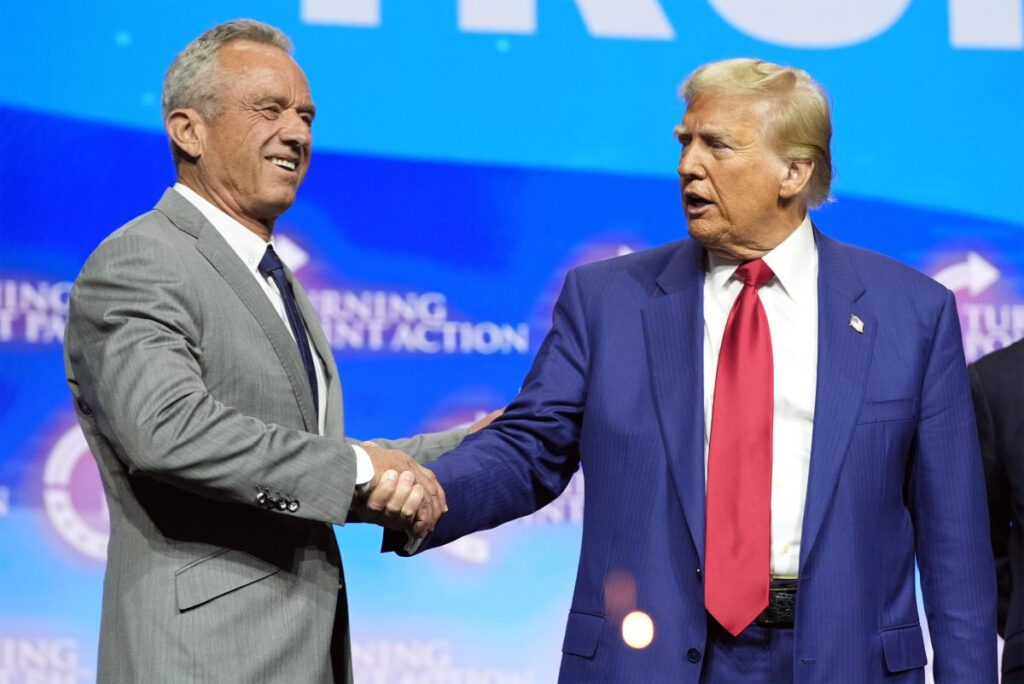Robert F. Kennedy Jr., known for his controversial stance on public health issues, recently announced that former President Donald Trump intends to push for the removal of fluoride from drinking water on his first day back in the White House if he wins the upcoming election. This announcement was made via social media, where Kennedy connected the fluoride issue to broader health agendas, coinciding with Trump’s motto of “Make America Healthy Again.” The declaration raised eyebrows among public health experts who have long recognized the benefits of fluoride in preventing tooth decay, citing the Centers for Disease Control and Prevention’s stance on its effectiveness. Trump’s campaign did not confirm whether this plan had been discussed, adding to the uncertainty and intrigue surrounding this proclamation.
Fluoride has been added to drinking water since the 1950s as a measure to enhance dental health, even as alternative fluoride sources like toothpaste became popular. Researchers assert that public drinking water remains the primary fluoride source for most Americans. Health experts have continuously updated recommendations regarding fluoride concentrations in response to concerns, particularly noted in 2015 with changes regarding fluorosis—an adverse condition characterized by mottled teeth. Despite its previous endorsement as a public health achievement, emerging studies have linked excessive fluoride exposure to cognitive risks in children, making the topic increasingly controversial. In particular, a recent study by the National Toxicology Program noted potential links between high fluoride levels and lower IQ, leading to judicial actions aimed at tightening regulations on fluoride usage in drinking water.
Kennedy’s remarks underscore the chaotic nature of decision-making that characterized Trump’s earlier term, where social media posts would frequently dictate policy directions with minimal deliberation. While public health officials have been wary of Kennedy’s influence—given his history of promoting debunked health theories—his alignment with Trump suggests a significant shift in how public health may be approached if Trump returns to power. Moreover, Kennedy’s involvement in high-stakes lawsuits against major news outlets over misinformation adds further layers to his controversial profile. His commitment to anti-vaccine rhetoric and other discredited health narratives raises alarms about the potential impact of his proposed health policies on public health systems.
Simultaneously, Kennedy’s political trajectory has seen him transition from an independent presidential candidate to a prominent surrogate for Trump. Not only did he accompany Trump during campaign rallies in key states like Michigan and Wisconsin, but he also indicates he might be instrumental in reshaping health agencies should Trump win. This potential reorganization could affect entities such as the Centers for Disease Control and Prevention and the Food and Drug Administration, raising questions about the future of public health policy in the United States. Trump has indicated a desire for Kennedy to take the lead on diverse health issues, suggesting that a Trump administration would prioritize a broad health agenda under Kennedy’s influence.
Trump’s recent endorsement of Kennedy stems not just from their overlapping health ideologies but also from a political strategy aimed at consolidating support from unconventional spheres of the electorate. Kennedy’s family legacy and namesake carry substantial weight in political and public health arenas, enhancing his credibility, albeit contentiously, among certain voter demographics. As Kennedy advocates for more unconventional health policies linked to anti-fluoridation stances, this partnership hints at a broader ideological battle regarding science and health governance in America. It reflects a growing schism in public trust regarding health institutions and the information disseminated by them.
As the electoral season intensifies, with Trump’s campaign gaining momentum, the structural changes and policy shifts suggested by Kennedy underscore a crucial juncture in U.S. health policy. If the partnership materializes into an administration-wide approach, it could introduce drastic changes to long-established public health norms, recasting how organizations like the CDC administer health policies. With the election looming and public health still navigating the waves of misinformation, the stakes become higher, hinging on Kennedy’s and Trump’s visions for a future that re-evaluates the complexities of fluoride and other health-related initiatives. Thus, the implications of these recent declarations extend beyond mere policy announcements, potentially reshaping public health discourse in profound ways.

